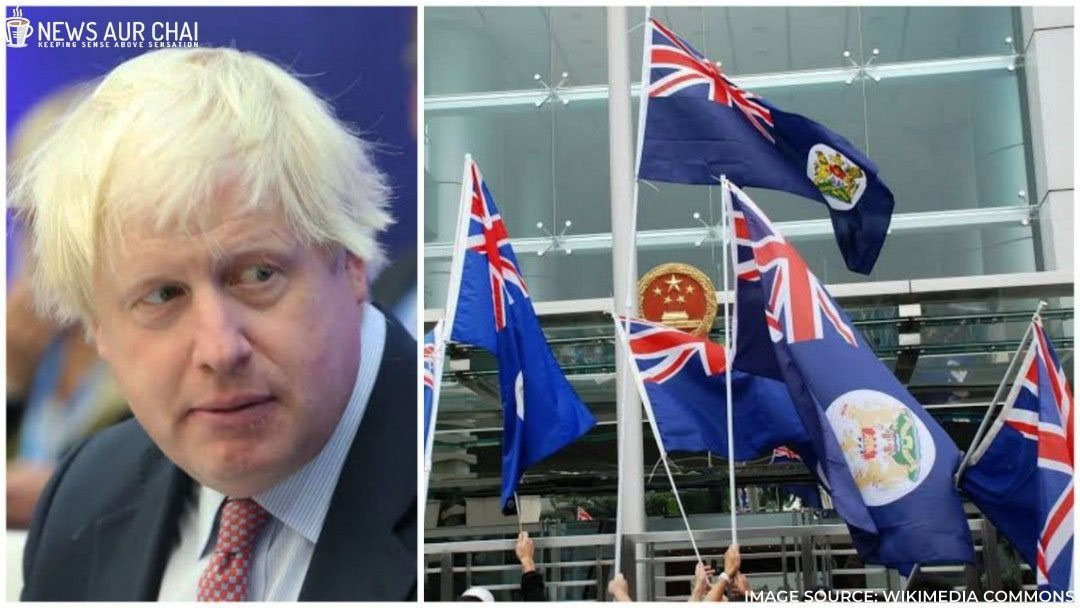
On May 28, Foreign Secretary of the United Kingdom (UK), Dominic Raab, announced that the country would be extending visa rights for about 350,000 British National (Overseas) (BNOs) passport holders if China executed its plans of imposing a draconian national security legislation on Hong Kong.
Apart from the 350,000 people residing in the Special Administrative Region of China eligible for the extended visa rights, a further 2.5 million are qualified to apply. This dramatic widening of the pool of Hong Kong citizens eligible to apply for UK citizenship by the Home Office has infuriated the Chinese Government, increasing the possibility of a backlash among traditional Conservative voters who are opposed to immigration. Raab said the visa rights would be extended for a period of 6-12 months, thereby paving an unspecified path to future citizenship.
China’s decision to go forward with the national security law has become the subject of worry among democracy activists, diplomats, and some in the business world who fear that it would hamper China’s semi-autonomous status and its role as a global financial hub. The decision received sharp criticisms from the UK, Canada, Australia, and the EU.
According to Beijing, the legislation will be enacted before September and combat subversion, secession, terrorism, and foreign interference. The law came after months of anti-government demonstrations, which started the previous year. The Chinese Government and authorities claim that the new law would not have any threat to the city’s autonomy and the interests of foreign investors will be taken care of.
British Prime Minister Boris Johnson wrote in the South China Morning Post, “If China imposes its national security law, the British Government will change our immigration rules.” He also mentioned that China’s imposition of the national security law would be directly in conflict with China’s obligations under the Joint Declaration signed by Britain and China, a legally binding treaty registered with the United Nations.
The international treaty was signed before Britain handed over its former colony Hong Kong to Chinese sovereignty in 1997.
Beijing’s resolution has been condemned by Britain and America, who jointly made an effort to raise the subject at the UN Security Council in New York, but were curbed by the Russia-China alliance.
UK Home Secretary Priti Patel said that if China moves forward with its decision, UK shall explore options to facilitate BN(O)s to apply for leave to stay and work in the UK. She further said that Britain would continue to defend the freedom and rights of Hong Kong citizens.
Johnson’s effort could nonetheless threaten the economic situation in the UK. Though the Prime Minister has got a massive popular support, the future of Britain’s economy, reeling under Coronavirus lockdown pressure, remains at stake, considering an enormous number of immigrants arrive at the country.
However, Johnson’s decision has been applauded by human rights groups as well as the lawmakers of his Conservative Party. Tom Tugendhat, a Conservative member of Parliament and chairman of the Foreign Affairs Select Committee said, “The Attacks on the civil rights of Hong Kongers are not just about Hong Kong, they are about the undermining of the rule of law around the world and its replacement with the rule of force.”
Bob Seeley, one of the lead campaigning Tory MPs considered mass migration from Hong Kong to the UK, would be a rare occasion where providing asylum would be morally justified. He also compared the situation with the displacement of ethnic Indians from Uganda by the country’s dictator Idi Amin who sought shelter in the UK and elsewhere in 1972.
Chinese foreign ministry spokesman Zhao Lijian has warned about retaliation stating that the country reserves the right to take necessary measures, and the Chinese residents of Hong Kong are considered to be Chinese citizens, regardless of what passport they possessed. China has also expressed concern regarding the UK’s proposal, which could lead to mass migration from the prosperous international city, destabilizing its economy.
Meanwhile, on June 5, thousands of Hong Kongers defy police ban and gathered around Victoria Park to mark the 31st anniversary of the Tiananmen Square massacre. The rally, which has been held every year since the 1989 crackdown on pro-democracy protesters in China, had been banned due to coronavirus fears, a move many viewed as political in a city where infections are down to a handful per month.
The fate of Hong Kong residents is yet to be seen.





